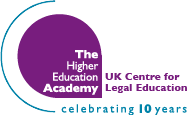Use of reflection as a method of improving student engagement

contributors | abstract | presentation | biographies
Contributors
Dr Karen Fullerton (University of Aberdeen)
Format
Paper presentation
Abstract
It has been suggested that students are not easily convinced of the merits of PDP and that this is especially the case if the PDPMiller et al A Toolkit for Enhancing Personal Development Planning Strategy, Policy and Practice in Higher Education Institutions QAA Mansfield 2009, 33 system is university wide as opposed to discipline specific.Miller et al A Toolkit for Enhancing Personal Development Planning Strategy, Policy and Practice in Higher Education Institutions QAA Mansfield 2009, 37 While evidence on student cohort uptake is difficult to ascertain where university PDP systems are under student ownership anecdotal evidence at Aberdeen University supports this trend and suggests that law students are not participating in the university PDP system. In 2010 a pilot study was undertaken where first year law students were required to participate in a subject specific PDP activity; the completion of a reflective logbook.
The aim of this pilot study was to introduce reflection to undergraduate law students at an early stage of their university studies to improve their learning experience and their engagement with the course. It was also intended to encourage students to relate their learning at this early stage to skills required in legal practice and to enable students to start early in self-recording evidence of skills development.
The reflective logbook contained: an explanation of its purpose and relevancy to the students; a self assessed audit of specific skills to be completed at both the start and the end of the course; information in relation to each of the five areas of skills taught in the course, the relevant learning outcome, the performance criteria, the method of achievement and the mode of assessment (both formative and summative); questions in relation to each skills area which asked students to reflect on: the process of achieving the skills; a critical incident using the skill; further development of the skill; mechanisms for making good any shortfalls in the skill and the form any further formal assistance might take, if it was required. A final section asked students to make some reflections on the academic year as a whole and to relate their experience to date to how they felt this was equipping them for legal practice.
The logbook’s use has been evaluated through review of the submitted logbooks, a questionnaire survey examining the student experience and input from the legal profession through a series of interviews.
The results indicate that when asked directly the students declared little direct recognition of the benefit to themselves of completing the logbook, but on further probing acknowledged benefit from the reflective learning exercise.
The results of this pilot suggest that although students may not recognise immediately the benefits of reflection, taking part in subject specific reflective learning activities does improve the students’ understanding of the value of reflection and engagement with their learning experience.
Although there is a substantial amount of literature on the use of reflection and PDP generally there is only a small but growing literature which evaluates its use in undergraduate legal education.Examples include: S Prince ‘PESCA: introducing personal development planning at Exeter’, (2001) (LTSN Generic Centre, Case Study No. 4) http://www.ukcle.ac.uk/resources/personal-development-planning/exeter (accessed 6/9/10); R East ‘A progress report on progress files: The experience of one higher education institution’. Active Learning in Higher Education (2006) Vol 6(2): 160-171; SM Bloxham and A Cerevkova, ‘Reflective Learning, Skills Development and Careers Management online – An Evaluation of a 1st Year law module’, Journal of Information, Law & Technology (JILT) 2007(1) and SM Bloxham, F Boyle & A Thanaraj ‘Using E-portfolios to Support PDP and Reflective Learning within the Law Curriculum: A Case Study’ Journal of Information, Law & Technology (JILT) 2009 (3) Hinett stated that ‘the introduction of reflection into legal education …has the potential to transform learning for students.’K Hinnett Developing Reflective Practice in Legal Education. Warwick: UK Centre for Legal Education 2002 http//www.ukcle.ac.uk (accessed 6/9/10) 54 Given the increasing use of reflective learning in both paper and e-portfolios the evaluation of this pilot provides valuable information for future developments.
Presentation
Short biographies of panel members
Dr Karen Fullerton is a Teaching Fellow at the University of Aberdeen. She currently co-ordinates the Diploma in Legal Practice and teaches the Dedicated Skills course, Legal Research & Writing, as well as Foundations of Public Law. She has been involved in teaching legal skills at both undergraduate and postgraduate levels for many years and has written a book on legal research skills for Scots lawyers which is currently in its second edition. Her PhD is thesis examined the impact of the water pollution control regime in Great Britain 1992/3. Karen is a qualified Scottish solicitor with a range of experience of private practice in particular civil litigation.
Last Modified: 3 February 2011



Comments
There are no comments at this time